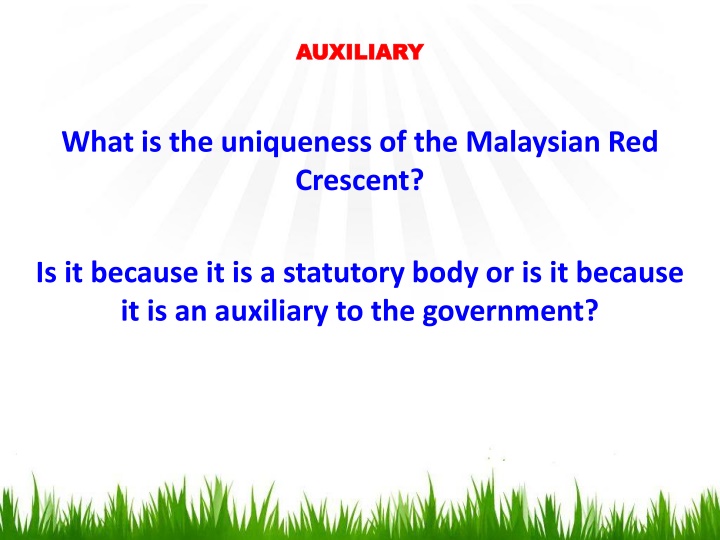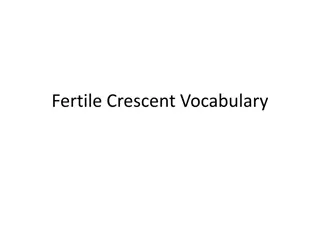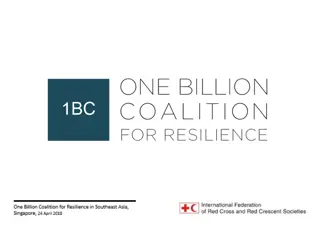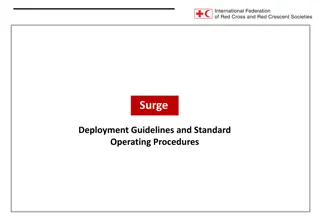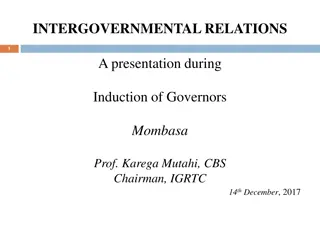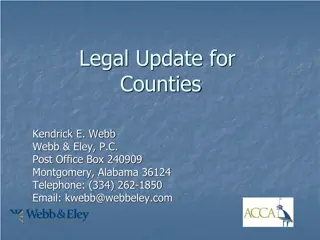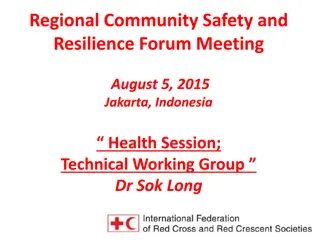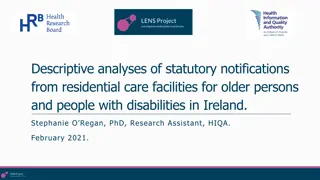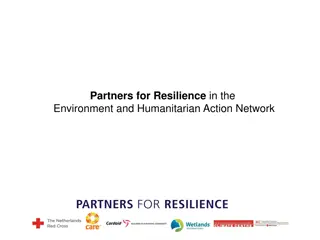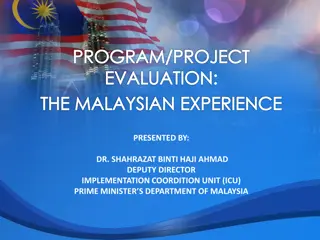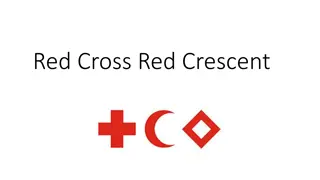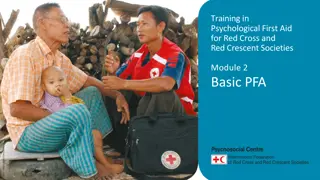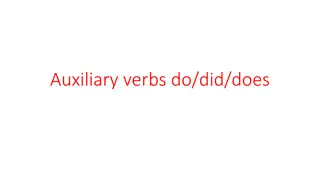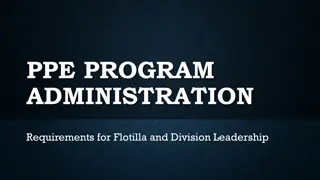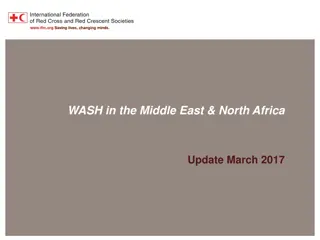Uniqueness of Malaysian Red Crescent: Statutory or Government Auxiliary?
The Malaysian Red Crescent stands out due to its role as an auxiliary to the government in the humanitarian field. This status is based on the rules of the International Red Cross and Red Crescent Movement, as well as national legislation. The organization's partnership with public authorities aims to prevent and alleviate human suffering, protect life and health, and uphold the Fundamental Principles guiding its work.
Download Presentation

Please find below an Image/Link to download the presentation.
The content on the website is provided AS IS for your information and personal use only. It may not be sold, licensed, or shared on other websites without obtaining consent from the author.If you encounter any issues during the download, it is possible that the publisher has removed the file from their server.
You are allowed to download the files provided on this website for personal or commercial use, subject to the condition that they are used lawfully. All files are the property of their respective owners.
The content on the website is provided AS IS for your information and personal use only. It may not be sold, licensed, or shared on other websites without obtaining consent from the author.
E N D
Presentation Transcript
AUXILIARY AUXILIARY What is the uniqueness of the Malaysian Red Crescent? Is it because it is a statutory body or is it because it is an auxiliary to the government?
MEANING OF THE WORD AUXILIARY MEANING OF THE WORD AUXILIARY Dictionary: a person whose job is to give help or support to other workers Cambridge Dictionary Providing supplementary or additional help and support Oxford Dictionary
Handbook of the International RCRC Movement: Chapter II Relations between NS and their Public Authority (page 828 883) National RCRC Societies as auxiliaries to the public authorities in the humanitarian field, Resolution 6 of the 2003 Council of Delegates National RCRC Societies as auxiliaries to the public authorities in the humanitarian field report to the 2003 Council of Delegates National Societies as auxiliaries to the public authorities in the humanitarian field, Resolution 0 of the 2005 Council of Delegates Summary of the study on situations of armed conflict. Annex to the report to the 2003 Council of Delegates Specific nature of the International RCRC Movement in action and partnerships and the role of the National Societies as auxiliaries to the public authorities in the humanitarian field.
National RCRC Societies as auxiliaries to the public authorities in the humanitarian field report to the 2003 Council of Delegates The role of auxiliary to the public authorities in the humanitarian field is characterized by a specific legal status, based on IHL, the rules established by the Movement and the national legislation of each State. The auxiliary role has primarily, national but also in some cases international implications : The state and the National Societies have a partnership aimed at preventing and alleviating human suffering, protecting life and health, ensuring respect for the human being Consultation of the National Societies on major humanitarian issues: At all levels, the representatives of the State and the National Societies understand the importance of the Fundamental Principles and ensure that the work of the National Society is guided by the Fundamental Principles ..
Summary of the study on situations of armed conflict. Annex to the report to the 2003 Council of Delegates Under the subsection 3. The concept of auxiliary Each of the principles has its own importance in relation to the concept of auxiliarity. Theprinciple of Neutrality provides that, in order that the National Society may continue to enjoy the trust of all, the State cannot require that it take sides in hostilities or involve itself in controversies of a political, racial, religious or ideological nature. Theprinciple of Independence illustrates the tension between the National Socieies nature as the auxiliaries of the public authorities and the necessary autonomy they must maintain in order to be able at all times to act in accordance with the Fundamental Principles.
Translating it to the action of the NS on the ground MRC is a statutory body. For that reason, the power that is given to the NS is defined by that which is in the Act of Parliament. Can only act in accordance to the power which are defined in the Act of Parliament. Otherwise, the act is considered as Ultra Vires.
Is MRC an NGO (Non-governmental organisation)?
Must MRC follow all the instructions of the government ministry or department?
Is MRC part of the government ministry or department?
Is MRC an auxiliary to the government ministry or department?
Why do MRC do all its humanitarian activities such as First Aid training, Ambulance services and provide assistance during flood?
Sample of work done by MRC in accordance to its auxiliarity function: provide ambulance services providing humanitarian assistance during period of natural or disaster in accordance to Directive 20 Providing humanitarian assistance to the Vietnamese Boat People Dissemination of IHL. ie assisting the government in dissemination of IHL which is one of the States which has ratified the GC s function. ie to the civilian and the military if invited Consultation with the relevant authorities in specific areas of humanitarian assistance eg natural disasters and ratification of specific international treaties
